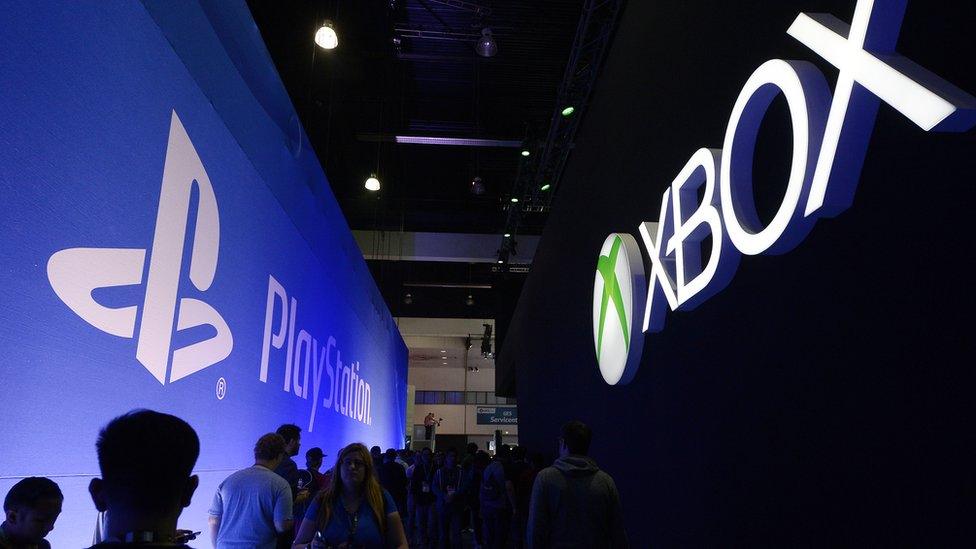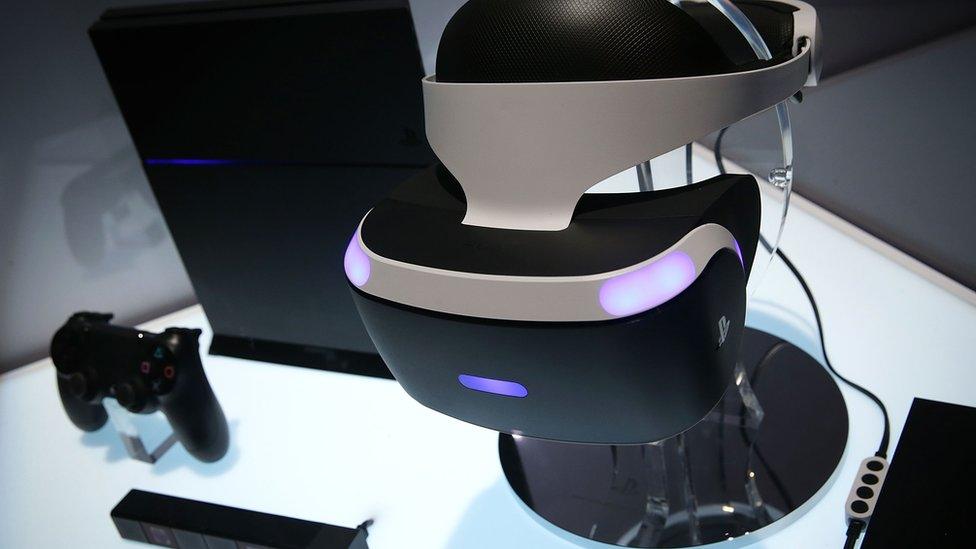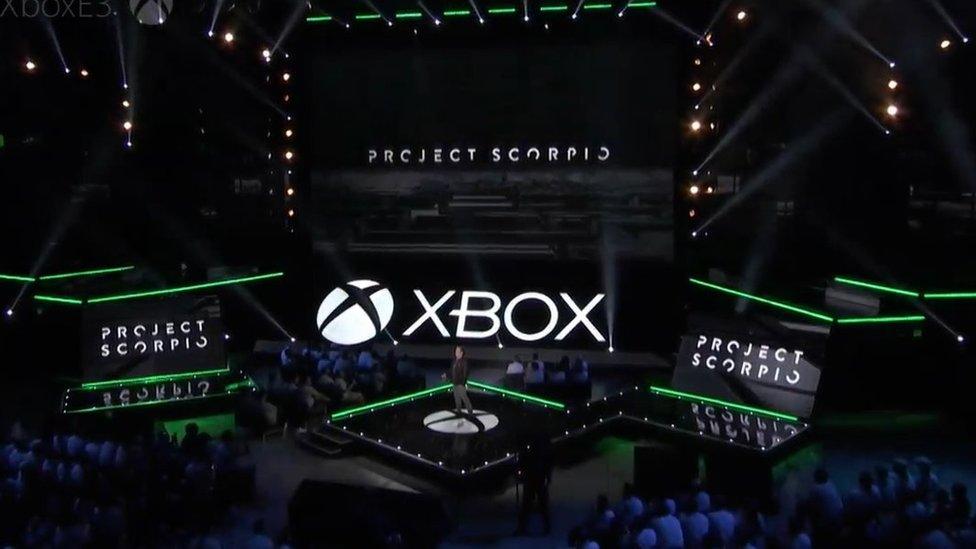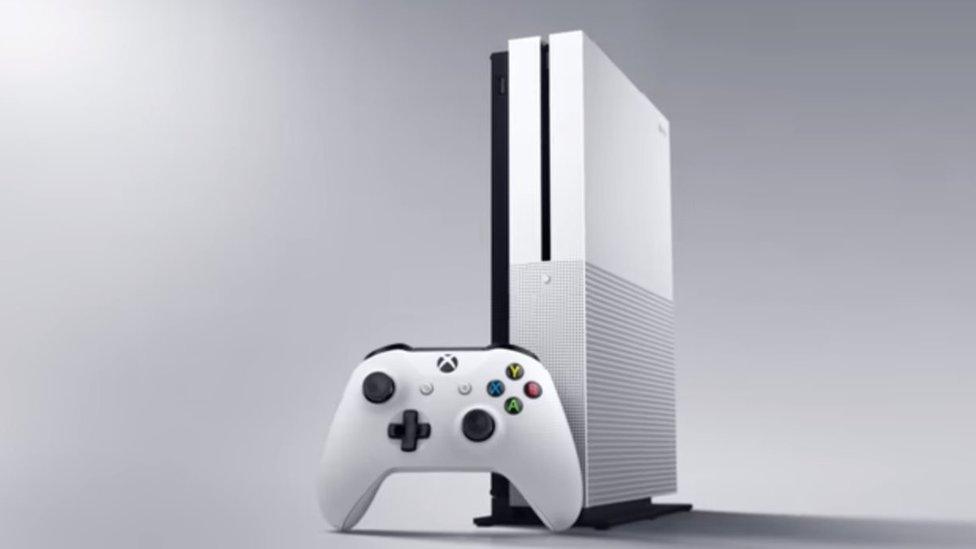E3: Do you back the tortoise or the hare?
- Published

The video games industry has always been a fiercely fought battleground - who is on top today?
Every year at E3, the video game Expo held in Los Angeles, people like to declare a "winner". Who, of the two console-gaming big guns, had the most impressive show?
I don't think we'll know who won 2016 for at least another few years. Only then, will we be able to accurately judge who played the masterstroke in 2016.
Will it be Sony, which is sticking to its promise of releasing a virtual reality headset this year?
WATCH: Microsoft unveiled plans for two new consoles at E3
Or will it be Microsoft, which says its Xbox One won't be a virtual reality machine, and instead will launch a super-powerful console for VR later in 2017?
It's a stark difference in strategy - a classic hare-and-tortoise race that could define the success of the PlayStation and Xbox brands for years to come.
Sony has hopped ahead to get first-mover advantage in console-based virtual reality gaming. PlayStation VR is going to be the lowest priced premium VR experience out there. At $399 (£349 in the UK), it's considerably cheaper than the $599 Oculus Rift or $799 HTC Vive.

Playstation VR was demoed at the Consumer Electronics Show in Las Vegas in January
But, more importantly, PS VR runs on the existing PlayStation 4, whereas its competitors require a sizable investment in PC gaming - about $1,000 of computing power, Oculus generally suggests.
There are more than 40 million PS4 consoles already out there, in the homes of gamers, and so the prospect of a huge user base getting quickly set up with VR is there for the taking.
A bevy of upcoming PS VR titles will accelerate this further - horror classic Resident Evil promises to be utterly terrifying, while nobody who has ever watched a Star Wars movie would turn down the chance to take part in a virtual reality X-Wing Fighter experience.
If Sony is sure it is ready to bring its headset to market, it makes you wonder why Microsoft is not doing the same.
The answer is straight-forward - it does not think the Xbox One is powerful enough.
That is not to say it is significantly less capable than the PS4, but rather that Microsoft's view of virtual reality seems to chime with that of Oculus and HTC: if you want VR to hit its real potential, you have to back it up with serious computing power that goes beyond the capabilities of the current console generation.

The high-spec Project Scorpio console from Microsoft will launch by Christmas 2017
And so Microsoft's tortoise-like move is to bring out a new console, for now codenamed Project Scorpio, that will offer big upgrades in power.
It is a gamble. Refusing to release a headset it thinks falls short of the sky-high expectations of VR is bold. Xbox boss Phil Spencer is letting Sony get the first-mover advantage in the hope that slow and steady will ultimately win the VR race for Microsoft.
There is one major flaw in this strategy.
Project Scorpio will probably make use of the Oculus Rift and HTC Vive headsets - as Microsoft doesn't have any VR hardware of its own - and, if it is going to pack as much tech as Microsoft promised, will surely be far pricier than the existing Xbox, more in line with buying a gaming PC.
WATCH: PlayStation's chief explains why he plans to release an upgraded PS4
That may limit the audience to people who want to spend a huge amount on setting up virtual reality experiences in their homes.
And if you are the sort of person who is happy to do that - why wait until 2017?
You could just buy a good gaming PC today and start VR gaming right away.
- Published14 June 2016

- Published14 June 2016

- Published13 June 2016
